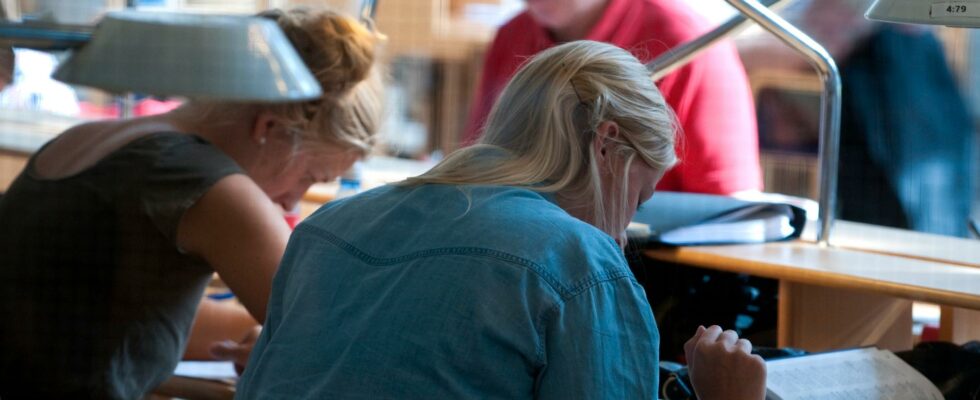unsaveSave
expand-left
fullscreenUKÄ has mapped what risks limiting the work of researchers and teachers at the universities. Archive image. Photo: Bertil Ericson/TT
Every second researcher and teacher at Swedish universities believes that the freedom to control research and teaching is threatened.
But the threats rarely consist of a culture of silence at one’s own university, but are about political influence, according to a new survey.
It is the Universitetskanslersämbet (UKÄ) that mapped how the universities work for research and the dissemination of knowledge without pressure or self-censorship, and how employees describe the degree of academic freedom.
The survey was commissioned by Minister of Education Mats Persson (L), who made it clear that ostracism or singling out culture (cancellation culture) should not occur in higher education. Students should not try to shut out teachers who bring up controversial topics, argued Persson.
UKÄ’s survey, answered by 3,800 researchers, doctoral students and teachers, shows that more than half consider that academic freedom is generally threatened at Swedish universities.
30 percent assess that their own academic freedom is challenged. These cases mostly concern research and may result in the researcher changing direction.
Politics rules
What is seen as a threat is mainly political governance and political influence as well as which research gets money.
The third most common threat is alignment, “low ceiling”, while only a fraction testifies to such things as threats, harassment and sabotaged teaching.
Hans Adolfsson, vice-chancellor at Umeå University and chairman of the Swedish Association of Universities and Colleges, says that the report gives an expected picture.
– But it doesn’t show what the minister was looking for. He wanted to demonstrate that there is a widespread cancellation culture at the universities, but it is obvious that it is not particularly pronounced. Instead, increased political governance is high on the agenda, says Hans Adolfsson.
He cites as an example the minister of education’s announcement some time ago that the flora of “hobby-like courses” should be reduced in favor of nursing and engineering courses – something that has been criticized by several universities.
“Worse than expected”
Education Minister Mats Persson reads UKÄ’s report with different glasses.
– What emerges is worse than I suspected. Many researchers describe that the ceiling is low, that there is a culture of silence, he says.
He admits that there is also a challenge around political governance and how it is perceived by universities.
– The academy is free, but it does not live in a vacuum. It is part of society and we invest large sums of money in education and research, says Mats Persson.
FACTS Results from the survey
On the question “Is academic freedom at Swedish universities challenged?” answered 53 percent yes, 23 percent no and 24 percent don’t know.
When asked “In what way?” several answers could be given. The most common were “political governance and political influence in general” (29 percent) and “Research funding and the research funding system in general” (28 percent).
The third most common answer was “Homogeneity, not daring to bring things up, adaptation to norms, alignment within academic environments, corridors of opinion, academic conformism” (10 percent).
The answers then followed:
“Targeted and narrow announcements and investments” (7 percent), “Ethical review” (6 percent), “Dependence on external financiers, too high a proportion of externally funded research” (5 percent) and Shortening the mandate periods of university boards, politically appointed boards (5 percent) .
Source: UKÄ’s Academic freedom in Sweden
Read more
